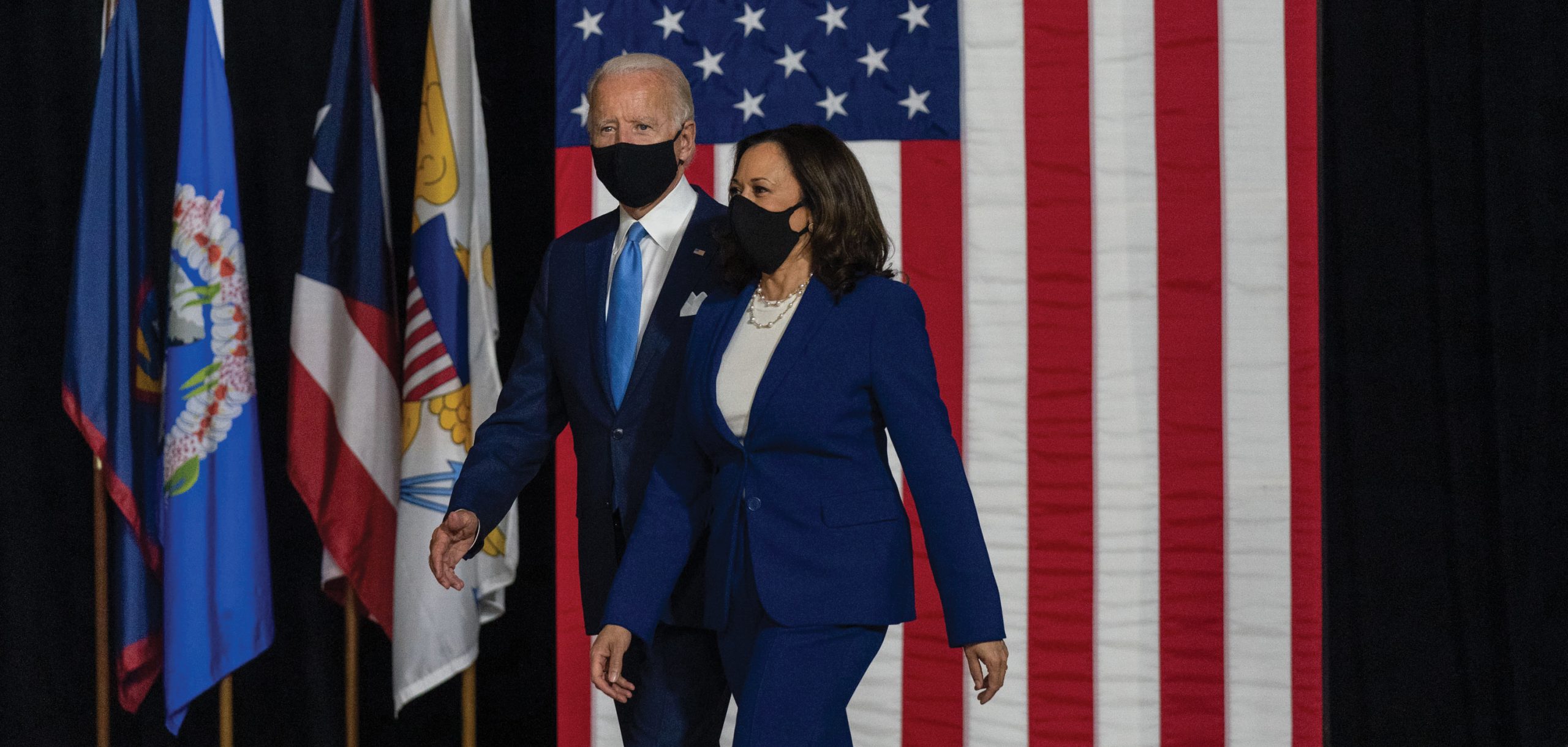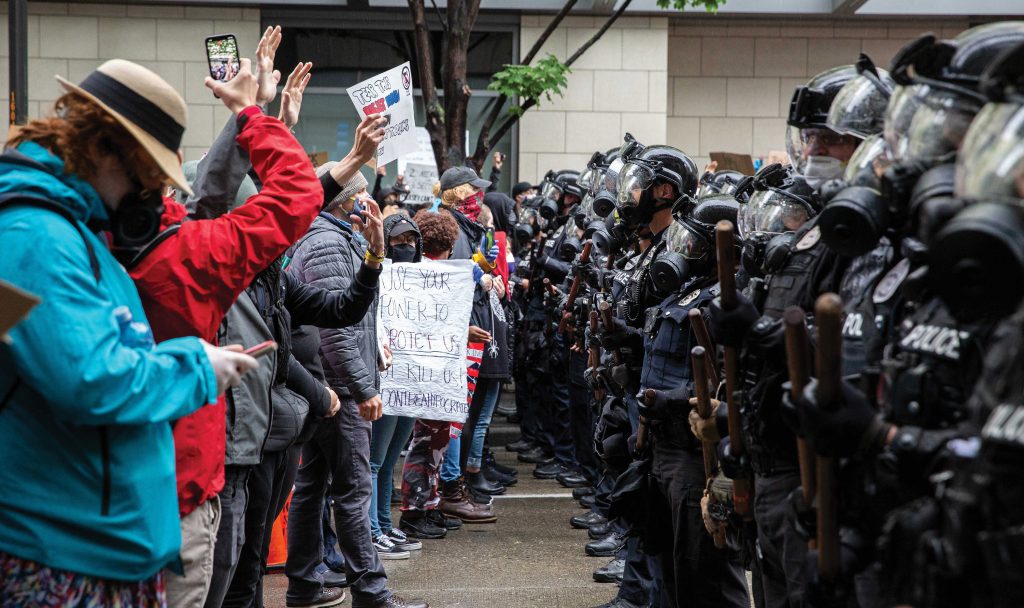Reports of the Death of America Have Been Greatly Exaggerated

As one of the most important US presidential elections in history approaches on November 3, Donald Trump is addressing the gap between more than one thousand days of degradation and disruption and plausible electability by pre-emptively attacking the integrity of the result. Veteran US diplomat and now Ottawa-based Earnscliffe Principal Sarah Goldfeder writes that Americans have never been in better fighting shape to confront this challenge.
Sarah Goldfeder
The United States sits on the eve of an election that many pundits have identified as the most important in our history. The results of this election will no doubt be challenged, prolonging the uncertainty and contributing to division. The popular vote may not determine who wins the White House—making this the third time in this century the archaic rules of the grand compromise protected the rural minority in the face of the more progressive urban centres. Challenges will no doubt be filed regarding vote suppression and fraud.
The intensity of activity in America surrounding this election has been long-absent from American electoral politics. Perhaps it is partially because Americans, due to the pandemic, have been at home, watching the news more. Perhaps it is that Americans are participating more in the conversation about governance because in a pandemic, we have an attachment to government that we might not have had before. And of course, there is Donald Trump, who has invigorated the American electorate since his entrance into the Republican nomination race in 2015. Americans have disagreed about his approach from day one, but his chaotic approach to controlling the virus has led to a yo-yo effect that is progressively eroding away what limited faith Americans have in government. Americans have long been suspicious of government, with the most recent slide in trust having begun in 2000 (Pew Trust in Government 1958-2019) and continuing throughout both this administration and the last. At the same time the failures to adequately supply hospitals, support businesses, and provide for individuals as they have lost their income, have illustrated the power and importance of the institutions of government.

That Americans do not always agree on the best path forward, whether it be a pandemic response, global engagement, race relations, reproductive rights, or the conduct of immigration officials, should surprise no one. The experiment that is the United States of America was founded on the idea that its citizens would disagree.
The notion that there is more than one way to view the world, to understand the priorities of government, and to map the best pathway for a country’s citizens is foundational to democracy. Fundamental to great democracies is that politics and government is for all, not just for political scientists. Critiques that focus on the intensity of disagreement of American voters and the repercussions of that intensity miss the underlying important character of the United States.
The underlying chaos of the Trump administration has energized both Republicans and Democrats as they head into the 2020 contest. The Trump administration is a reflection of the pendulum of democracy. After eight years of the Obama administration exercising executive power to entrench progressive values, those that disagreed with that vision united behind a candidate that had no political ideology beyond being the anti-Obama.
In the four years of the Republican Party being molded into this something new, something absent a coherent requirement beyond loyalty to the president, the party no longer looks familiar to many. However, without a champion of their own to stand up to the battle cries of the president, they have chosen power over good governance. The few Republicans that have stood up to the president have been pushed aside not just by the White House, but by their colleagues in the House and Senate. Meanwhile, in 2018, the pendulum swung in many congressional districts towards more progressive Democrats, but the race for the presidential candidacy in 2020 has moved the Democrats back into the centre.
How is the pandemic influencing this election? COVID-19 has not proven to be an equitable disease. For a whole host of reasons, the virus affects Black Americans, more often and more virulently than white Americans. The virus brought to the surface a litany of evidence of systemic racism. Notably, Black Americans were more likely to have been unemployed as an effect of the shutdowns across the country, and at the same time, were more likely to be the jobs with high risks of exposure to the virus.
Add to that cauldron of inequity: the murder of George Floyd, the Black man asphyxiated by a white police officer in Minneapolis on Memorial Day; three white men shooting a Ahmaud Aubery while he jogged through his own neighborhood in Georgia; and a white woman, Amy Cooper, who called the New York City Police with a complaint about a Black man, Christian Cooper, when he asked her to follow the rules and leash her dog. The headlines came rapidly, while Americans sat at home, on TV, Twitter, and Tiktok, and the rage boiled over.
In the months before a pivotal election and in the middle of a pandemic, Americans took to the streets and demanded that government be accountable. The Black lives Matter movement has moved beyond protesting about police brutality to demanding that the police, as an institution, be replaced. The argument that the law enforcement system is so broken it cannot be fixed has resonated across communities from California to Chicago to Minnesota to Washington D.C. The argument that the people are not the problem, that the system is the problem, provides a policy path forward.
As the world watched, an American president failed to take on the usual mantle of leadership as COVID-19 spread globally. Not only did America fail to take on its usual supporting efforts to contain this virus, it gave up on its own domestic response. Despite mixed messages and disparity of experience, it turns out that many agreed with the president, many believed the severity of the situation to be a figment of the imagination of the mainstream media. And even now, with death rates and infection rates at global records, many Americans repeat the president’s tweet from the early days of spring, “WE CANNOT LET THE CURE BE WORSE THAN THE PROBLEM ITSELF.”
This summer, what should have been a busy and energized campaign season with buses and planes crisscrossing the continent, has been rendered virtual. With a captive audience of millions on social media platforms, Trump has worked to rally his base in the heartland, and Joe Biden and Kamala Harris have made history. Polling reflects a still-divided America. With the margins between the two campaigns hovering in the low double digits, it is clear this will be a fight to the finish. A handful of states, as in previous years, look to determine the outcome and those include many on the northern border; Minnesota, Pennsylvania, Wisconsin, Michigan, New Hampshire, and Maine. Florida will once again take centre stage as a must-win state with the added challenge of many absentee voters. The president’s war on vote-by-mail has been elevated to new heights by his current attempted weaponization of the US Postal Service. Little wonder, as the states of the west coast—all governed by Democrats—are all vote-by-mail.
As has been consistently made clear in so many, previously unimaginable ways during Trump’s presidency, democracy is messy. And the adjustments that have been made over time may have actually contributed to the current situation. Arguably, the deployment of executive orders to force policy that could not find its way through the legislative branch was a technique the Trump Administration learned from the Obama Administration. The results of those orders have been disruptive—forming an unstable foundation for the policy environment. The power of one president to shape the judicial branch for a generation is also outsized and threatens that unstable foundation. This administration has taken advantage of many of the weak spots of the scaffolding that holds the government accountable to the people. That doesn’t mean those weak spots won’t be shored up. The consequence so far has been a strengthening of the local politicians, governors and mayors of America.
From outside the country’s borders, it may look like America is unraveling. But inside, Americans remain resilient. Even while the president stokes division, Americans find unity of purpose. This is not an unraveling; this is an opportunity. Americans are not ones to forego opportunity.
There is a window here that comes along once a generation and is generally preceded by tragedy and strife. While some will argue that this moment is different somehow because Americans have grown lazy and complacent, the truth is that Americans have never been more ready—never been in better fighting shape.
Contributing Writer Sarah Goldfeder, a principal of the Earnscliffe Strategy Group in Ottawa, is a former US State Department Official and adviser to two US Ambassadors to Canada.
